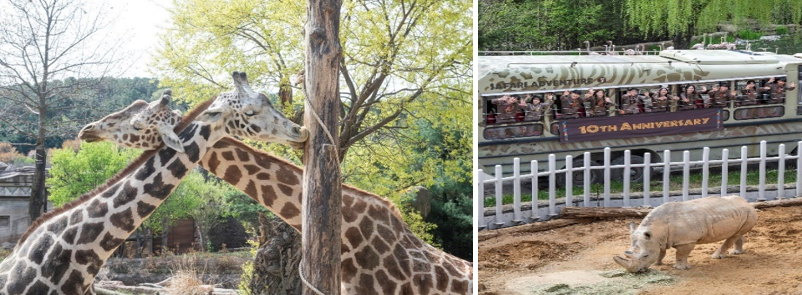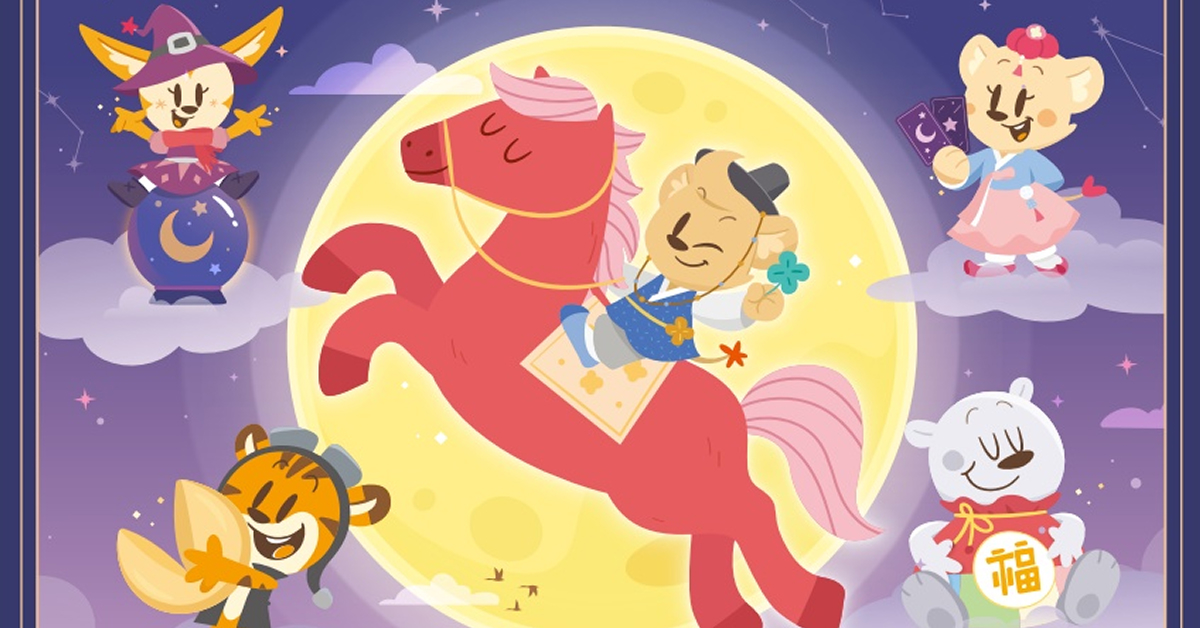For the last decade, millions of people have been finding a lost valley and have been amazed by what they discover there. Everland, Korea’s premier theme park, is celebrating the tenth anniversary of the opening of its Lost Valley to the public in April 2013.
Together with Safari World, Lost Valley is one of Everland’s two major attractions where visitors can see wild animals in real life. Whereas Safari World is populated by fierce carnivores like bears, lions, and tigers, Lost Valley has around 200 examples of 24 species of plant-eating animals such as elephants, giraffes, rhinoceroses, and others.
Taking an eco-safari tour
With an initial investment of about 50 billion won, Everland opened Lost Valley as a top-quality ecological safari park, putting to use its own accumulated expertise on animal care and protection. In changing the paradigm from a human-centered zoo, where animals are simply put on display, to an eco-immersion zoo, where various species live together in a simulation of their natural habitat, Everland has received high praise from around the world.
Ever since its opening a full decade ago, Lost Valley has been popular, drawing a total of 18 million visitors – about one in three people in Korea. During that same period, Everland received about 61 million visitors, meaning about 30% of the visitors to Everland have gone to Lost Valley.
Unlike a zoo, a visit to the Lost Valley really feels like a safari tour, because animals are not caged or behind glass, but are free to roam and encounter one another in the specially sculpted landscape – including rocky canyons, caves, waterways, lakes, waterfalls, and swamps – designed to resemble their wild homes as much as possible. Animal happiness is therefore one of the highest priorities here. To enable people to see the inhabitants close up, amphibious safari buses with no glass in the windows take visitors to interact with the animals.
In ten years, these safari vehicles have carried tourists a grand total of 470,000 kilometers through Lost Valley, equivalent to 12 times around the earth. While passing close by the animals, the safari tour is designed not to disturb their daily lives and routines. This enhances the psychological well-being of the animals, such that even animals that often find it difficult to reproduce in captivity have had babies, such as giraffes, Barbary sheep, and alpacas.
These efforts at Lost Valley contributed to Everland becoming the first Asian zoo to receive the highest level of certification from the Association of Zoos and Aquariums(AZA) as a zoo that plays a role that emphasizes animal welfare and the conservation of endangered species.
Studying the plant-eaters
In commemoration of the tenth anniversary of Lost Valley’s opening, Everland is initiating a new educational program where visitors can learn by observing the lifestyle and habitat of the animals and experience first-hand the importance of animal and nature conservation.
Every weekday to the end of November, the Herbivore Academy will give visitors an opportunity to closely observe the activities of animals large and small, from the tiny desert foxes and chinchillas to the tall giraffes and mighty elephants.
And the Early Bird Lost Valley Tour allows people to watch the morning routines of rhinos who like to take a mud bath first thing in the morning, or elephants, who prefer to have a swim.
The area where the rhinos can graze has been expanded, bringing it closer to the path of the visitor’s safari tour, so that people can see even better how these horned beasts eat and move. Along the way, visitors learn more about the endangered animals that are still hunted in some parts of the world for their ivory, and receive messages urging their conservation and protection.
Meanwhile, two new animals will be moving into Lost Valley. Dani and Bongi, a male and female pair of dromedary camels with only one hump each, will take up residence alongside their existing two-humped compatriots.
As a thank-you to visitors to Lost Valley, Everland will be holding a number of events and campaigns, including offering commemorative gifts and promoting environmental protection.
Chung Dong-hee, head of Everland Zoo, which includes both Lost Valley and Safari World, said in a statement, “We are very grateful to our visitors who have shown such love for Lost Valley over the last ten years,” adding, “We will continue to strive to help people realize the importance of animal and nature conservation and spread the value of species preservation.”
For more information, and to check visiting hours, go to the Everland website or use the Everland app.













